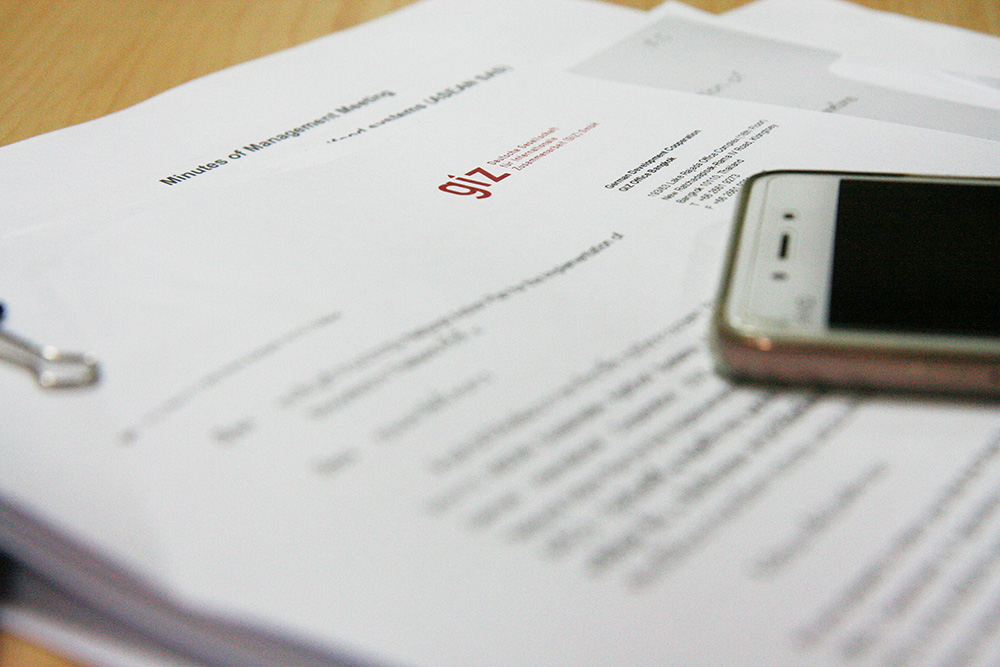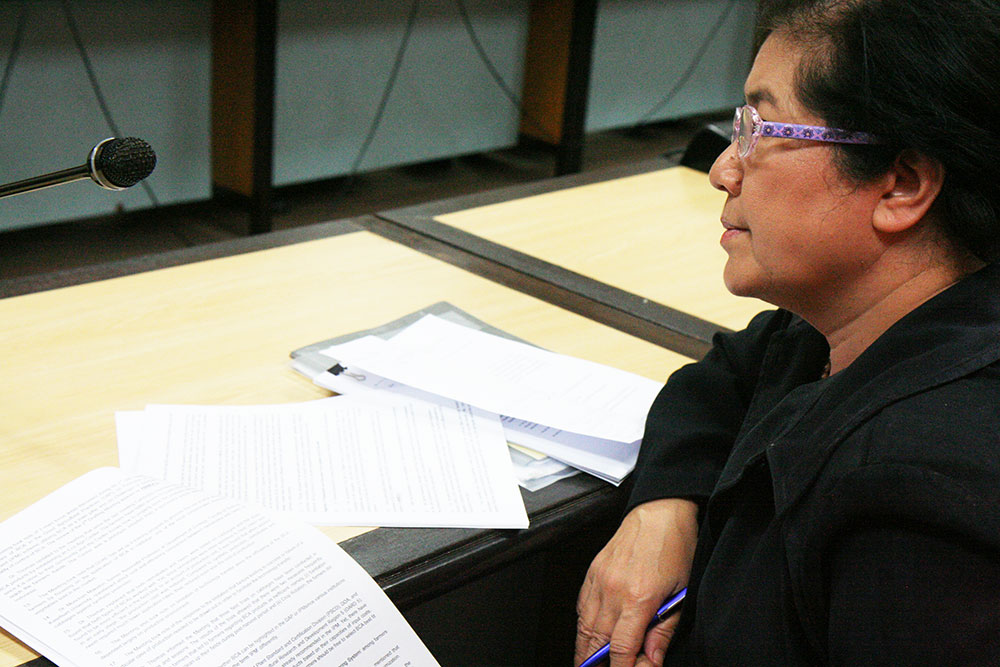
Writer: Natasha Angsakulchai, Project Assistant, Facilitating Trade for Agricultural Goods in ASEAN (FTAG)
Issues on chemical residue are on the rise, and concerns to find greener alternative solution ensue. Biological control agents (BCA) for crop protection products are known to be the green choice for pest prevention. However, the environmental friendly products for crop have yet to make a breakthrough in the competitive market dominated by chemical pesticides. While there have been efforts to promote BCA products to farmers both by public and private sector, closer cooperation between different institutions are vital for its success since issues on BCA production and awareness raising among key players still lie ahead.
The Department of Agriculture (DOA) Thailand together with ASEAN Sustainable Agrifood Systems (ASEAN SAS) project recently hosted the final drafting meeting to complete the ‘National Action Plan (NAP) for the Implementation of Biocontrol in Thailand’ on 7 November 2016.
 Over 30 experts and representatives from key institutions such as the DOA, Department of Agricultural Extension (DOAE), Rice Department, National Centre for Genetic Engineering and Biotechnology (BIOTEC), and private companies met for the fourth time to discuss and finalise their future planned activities to promote the use of BCA until 2018 as listed. Although this is the final drafting session, all participants are scheduled to meet again in six-month to monitor and report on the progress of their activities.
Over 30 experts and representatives from key institutions such as the DOA, Department of Agricultural Extension (DOAE), Rice Department, National Centre for Genetic Engineering and Biotechnology (BIOTEC), and private companies met for the fourth time to discuss and finalise their future planned activities to promote the use of BCA until 2018 as listed. Although this is the final drafting session, all participants are scheduled to meet again in six-month to monitor and report on the progress of their activities.
The National Action Plan which is based on the ‘ASEAN Guidelines on the Regulation, Use, and Trade of Biological Control Agents’ was developed to support the implementation of the ‘ASEAN Integrated Food and Security (AIFS Framework)’, which was adopted by the ASEAN Leaders at the 14th ASEAN Summit in 2009 in Thailand to provide scope and joint pragmatic approaches for cooperation among ASEAN Member States in addressing food security and reiterated at the 25th ASEAN Summit held in November 2014 in Nay Pyi Taw, Myanmar.
 The final draft of the NAP will be submitted to the Director General of DOA Thailand for approval.
The final draft of the NAP will be submitted to the Director General of DOA Thailand for approval.
In the Meeting, Dr. Sarute Sudhi-Aromna, Director of DOA’s Pest Management shared planned project to decentralised BCA production technology to other region in Thailand: “Our plan is not only to produce [it] here [in DOA]. We plan to transfer the technology at regional level and then extend it further.”
This project will include training of officers both in the DOA and its regional offices as well as improving production facilities. He admitted that DOA are still lacking in personnel and facilities and would gradually expand the project with the future prospect of working together with DOAE’s Agricultural Learning Centre.
Disseminating knowledge on BCA production to make the product more accessible to local farmers is necessary to further the adoption of BCA products in the long run.

As for farmers training on BCA products, while both government and private companies are already engaged in this activity, however, Dr. Areepan Upanisakorn, Director of Biological Control Sub-division of DOAE stressed for future training collaboration.
“If it is possible, we should do a joint-training together since the upcoming 2017, DOAE already have trainings and to be honest, we are concerned about [the workload of] field officers as there are so many trainings here and there,” said Dr. Areepan as she invited DOA to combine their training efforts together and extended it to other parties who are interested as well.
Mr. Chatri Jampa-ngern, Managing Director of Thai Neem Products Co., Ltd., showed enthusiasm about the training collaboration saying: “I would like to know how I can be part of the training together with DOA and DOAE since I also usually organise training on neem to the farmers.”
Dr. Thomas Jaekel, Chief Technical Advisor of ASEAN SAS concluded in making sure that farmers gain a holistic understanding of the nature of BCA and its usage is important since a shift from chemical pesticide to BCA product is not simple. “If you want to have sustainable application or sustainable pest management, you need to think about the whole crop cycle.”
The experts and representatives from key institutions of both public and private sectors will meet again in May 2017 for the monitoring meeting of the NAP for the implementation of Biocontrol in Thailand.

